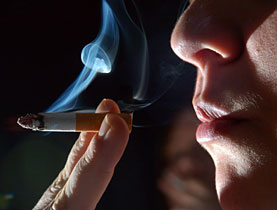Calls made for moderation in alcohol prevention

The Swiss government is launching a nationwide prevention campaign against alcohol addiction as it pursues efforts to promote its health policy.
Experts have welcomed the proposed measures that stop short of tax hikes on alcoholic beverages, raising age limits for customers or banning nighttime sales of alcohol.
Cabinet aims to reduce within four years the number of teenage binge drinkers by ten per cent. The number of alcohol addicts among the over-50s is to be cut by five per cent.
Interior Minister Pascal Couchepin, who oversees health policy, called for a commonsense approach in the fight against addiction, be it alcohol or tobacco.
“Prevention measures are necessary, but we do not want to stop people from enjoying life. The government has no plans to impose controls on every individual,” Couchepin said on Wednesday.
He added that he was convinced that soft measures would be effective and dismissed allegations that the government had given in to pressure from the business community.
“The cabinet has come out in favour of continuing efforts to implement existing rules and calls for close cooperation between cantons, local authorities and private organisations,” he said.
The country’s 26 cantons play a key part in alcohol prevention, as they decide alone on opening hours for shops and bars as well as on guidelines for advertising.
An estimated 260,000 people aged between 15 and 75 regularly drink too much and about 300,000 are addicted to alcohol or belong to a group of people at risk of addiction.
Tobacco
Alcohol and tobacco dependency as well as unhealthy eating habits and a lack of exercise contribute SFr20 billion ($19.2 billion) to national healthcare costs, according to the government.
Tobacco prevention is focusing on awareness campaigns, encouraging young people to take responsibility for their health.
The aim is to nearly halve the number of smokers by 2012, and reduce the percentage of young smokers to below 20 per cent. The government will discuss plans for an increase in cigarette prices later this year.
Non-governmental prevention groups have welcomed the government’s decision to pursue its anti-alcohol efforts as a major step.
“The government indirectly admits that there is an alcohol problem and says cooperation between different political actors is necessary,” said Markus Theunert of the association of experts on alcohol and drug addiction.
He added that the government remained firm and would not give in to pressure by business groups.
The Swiss institute for the prevention of alcohol and drug problems is also satisfied with the cabinet’s position.
“It is a strong signal. We support the strategy and the goals and are waiting for the Federal Health Office to define the next steps,” said the institute’s Monique Helfer.
swissinfo, Urs Geiser
The government has earmarked SFr20 million ($19.2 million) for national prevention projects over the next four years.
The government’s prevention programme has targeted drugs, tobacco, and Aids since the 1990s.
The fight against alcohol addiction has become part of the federal policy in past few years.
The cantonal authorities are largely autonomous in their prevention policy and cooperate with local authorities and non-governmental organisations.
The government says it seeks to improve cooperation between all parties concerned, and collects data to evaluate the best practices for combating addiction.
An estimated 260,000 people aged between 15 and 75 regularly drink too much.
About 300,000 are addicted to alcohol or belong to a group of people at risk.
On average five people, most of them young, are admitted to hospital every day for treatment of alcohol-related problems.
One in six deadly road accidents is the result of drink driving.
Alcohol-related illness generates annual costs of about SFr6.5 billion, according to the health office.

In compliance with the JTI standards
More: SWI swissinfo.ch certified by the Journalism Trust Initiative












You can find an overview of ongoing debates with our journalists here . Please join us!
If you want to start a conversation about a topic raised in this article or want to report factual errors, email us at english@swissinfo.ch.